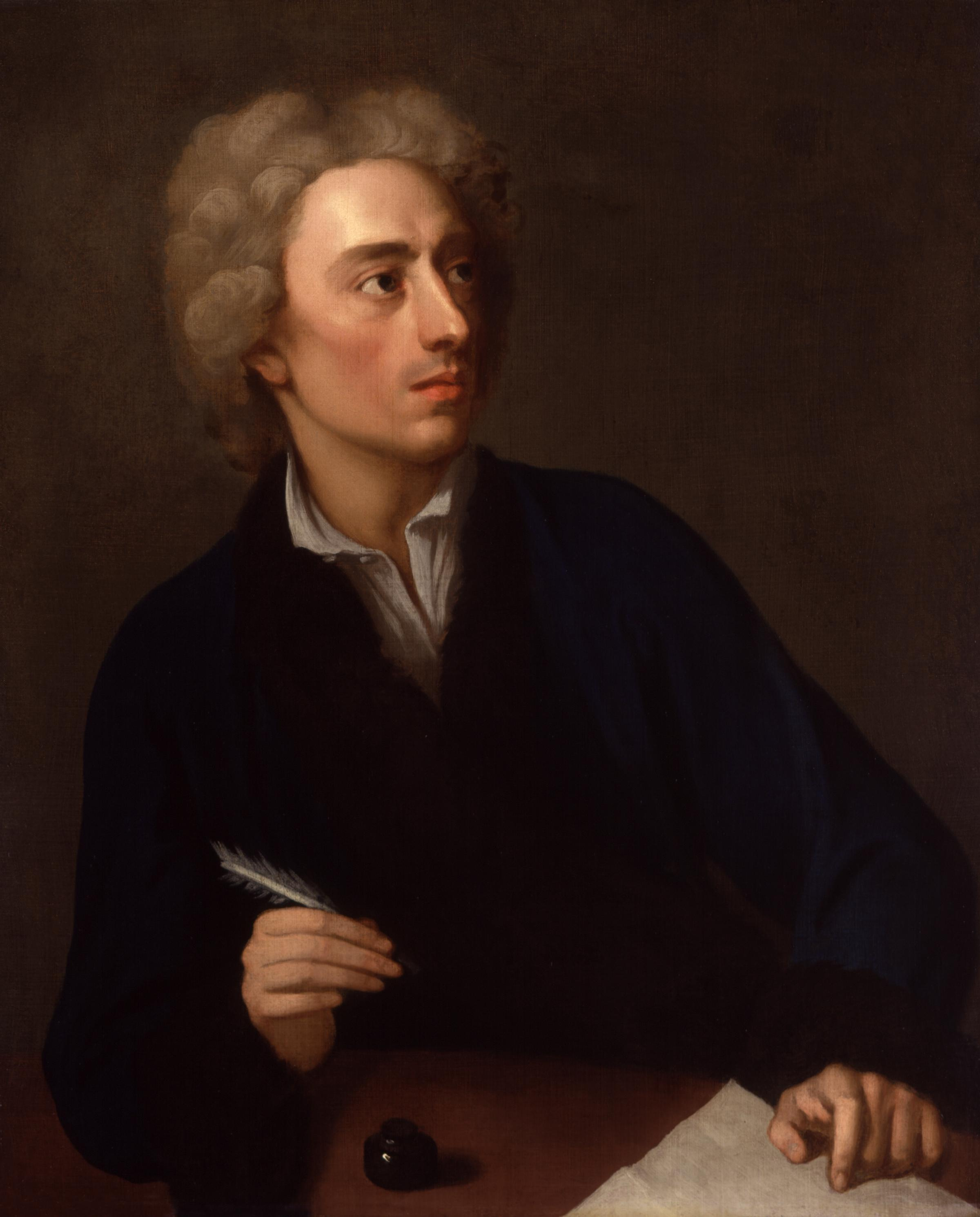Alexander Pope frasi celebri
“Errare è umano, perdonare è divino.”
da An Essay on Criticism, 1711, II parte, riga 325
Variante: Errare è umano, perdonare divino.
“Benedetto l'uomo che non si aspetta nulla, perché non resterà mai deluso.”
da Thoughts on Various Subjects
Frasi su Dio di Alexander Pope
Saggio sull'uomo
Origine: Citato in Andrew Linzey, Teologia animale, traduzione di Alessandro Arrigoni, Cosmopolis, Torino, 1998, p. 56. ISBN 978-88-87947-01-4
Alexander Pope Frasi e Citazioni
Variante: Com'è felice il destino dell'incolpevole vestale!
Dimentica del mondo, dal mondo dimenticata.
Infinita letizia della mente candida!
Accettata ogni preghiera e rinunciato a ogni desiderio.
da Thoughts on Various Subjects
da An Essay on Criticism, I, 574-5, citato in Per Difesa e Per Amore di Gian Luigi Beccaria, Garzanti, Milano 2006, pag. 35
“La natura è tutta un'arte a te sconosciuta.”
citato in Focus, n. 70, pag. 130
“Il caffè, che rende il politico saggio | e guarda a ogni cosa con gli occhi mezzi chiusi.”
da The Rape of the Lock, canto III, verso 117
Alexander Pope: Frasi in inglese
Statement of 1739, as quoted in Observations, Anecdotes, and Characters, of Books and Men (1820) by Joseph Spence, p. 286.
Variant reported in Familiar Short Sayings of Great Men (1887) by Samuel Arthur Bent, p. 451: "True politeness consists in being easy one's self, and in making every one about one as easy as one can."
Attributed
In his letter to Atterbury Bishop of Rochester. Sept. 23. 1720.
Epilogue to Rowe's Jane Shore (1714).
“This casket India's glowing gems unlocks
And all Arabia breathes from yonder box.”
Canto I, line 134.
The Rape of the Lock (1712, revised 1714 and 1717)
“The hungry judges soon the sentence sign,
And wretches hang that jurymen may dine.”
Canto III, line 21.
The Rape of the Lock (1712, revised 1714 and 1717)
“Luxurious lobster-nights, farewell,
For sober, studious days!”
"A Farewell to London" (1715), st. 1.
Letter, written in collaboration with Dr John Arbuthnot, to Jonathan Swift (December 5, 1732) upon the death of John Gay.
"Sappho to Phaon", line 52 (1712).
“Unblemish'd let me live, or die unknown;
O grant an honest fame, or grant me none!”
Closing line.
The Temple of Fame (1711)
“Now lap-dogs give themselves the rousing shake,
And sleepless lovers, just at twelve, awake.”
Canto I, line 15.
The Rape of the Lock (1712, revised 1714 and 1717)
Origine: The Temple of Fame (1711), Lines 449-458.
Letter to Edward Blount (27 August 1714); a similar expression in "Thoughts on Various Subjects" in Swift's Miscellanies (1727): Party is the madness of many, for the gain of a few.
“A god without dominion, providence, and final causes, is nothing else but Fate and Nature.”
Isaac Newton: Principia Mathematica (1687); Rules of Reasoning in Philosophy, Rule IV.
Misattributed
“On her white breast a sparkling cross she wore
Which Jews might kiss, and infidels adore.”
Canto II, line 7.
The Rape of the Lock (1712, revised 1714 and 1717)
As quoted in Anecdotes, Observations, and Characters, of Books and Men (1820) by Joseph Spence [published from the original papers; with notes, and a life of the author, by Samuel Weller Singer]; "Spence's Anecdotes", Section IV. pp. 134–136.
Attributed
Origine: The Works of Mr. Alexander Pope (1717), Elegy to the Memory of an Unfortunate Lady, Line 51.
“Let opening roses knotted oaks adorn,
And liquid amber drop from every thorn.”
Autumn, line 36.
Pastorals (1709)
“On all the line a sudden vengeance waits,
And frequent hearses shall besiege your gates.”
Origine: The Works of Mr. Alexander Pope (1717), Elegy to the Memory of an Unfortunate Lady, Line 37.
“For he lives twice who can at once employ
The present well, and e'en the past enjoy.”
Imitation of Martial, reported in Mr. Pope's Literary Correspondence (1737), Vol. V, p. 232; The Poems of Alexander Pope, ed. John Butt, sixth edition (Yale University Press, 1970), p. 117. Compare: "Ampliat ætatis spatium sibi vir bonus; hoc est Vivere bis vita posse priore frui" (Translated: "The good man prolongs his life; to be able to enjoy one's past life is to live twice"), Martial, X, 237.; "Thus would I double my life's fading space; For he that runs it well, runs twice his race", Abraham Cowley, Discourse XI, Of Myself, stanza xi.
